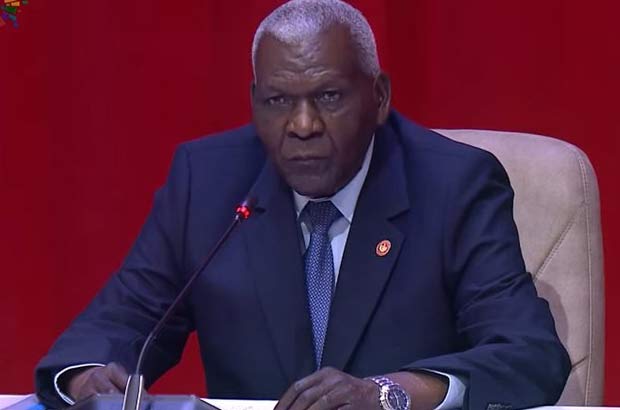In his speech, he stated that this new Legislature, the tenth, has the obligation to think of new ideas with the aim of achieving a prosperous and sustainable socialism.
He stressed that the first task of the 470 deputies will be aimed at strengthening the economy and meeting the needs of the population, coping with the intensification of the US blockade, the post-pandemic crisis and the consequences of the European conflict.
He also stressed that they have the challenge of controlling the country’s economic strategy and the measures approved in this regard, as well as demanding more rigorously from whoever has to fulfill each task.
The fight against inflation will be another of the work pillars, and he pointed out that for this, an increase in food production, the development of agriculture and the cohesive work of all economic actors are required.
He added that it represents another challenge to strengthen the links of the deputies with the people, improve the dialogue of the National Assembly with the municipal structures and reinforce the role of the delegate in the communities.
Likewise, he explained they are obliged to carry out an in-depth analysis of the functions of parliament, especially oversight and administrative activity.
He reiterated the necessary participation of the people in the ideas and initiatives that are discussed and approved in the legislative body, as well as the important contribution of science and innovation in government management.
He recalled that this constitutive session follows the enriching dialogues of candidates for deputies with the population, an exercise that must be systematized.
The also president of the Council of State, pointed out that the generational variety and by sectors of this Tenth Legislature represents a strength for the fulfillment of the planned tasks.
In this sense, he advocated for a greater and constant preparation of the deputies, that by marching together with the people, the saying that “Better is possible” can come true.
When making a summary of the activity of the previous legislature, he summarized that 35 laws were approved, including a profound procedural, judicial and social justice reform, as was the case of the Family Code.
In the previous period, 103 decree laws were also approved and processes of high supervision of agencies of the Central State Administration, the Council of State, Ministries and the rendering of accounts of the President and the Prime Minister of the Republic were carried out.
During the previous Legislature, the documents of the VIII Congress of the Communist Party of Cuba and the country’s economic policy were also ratified, all this in the midst of the complex situation caused by the Covid-19 pandemic.
He also highlighted the work of the permanent work commissions that carried out an in-depth analysis of the main issues that impact the population.
Likewise, the improvement of the organs of people’s power continued, in order to strengthen citizen participation, and parliamentary participation in international forums was active.
ef/ro/mpp










